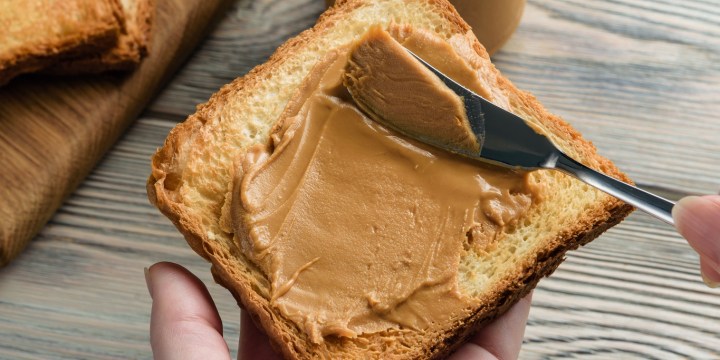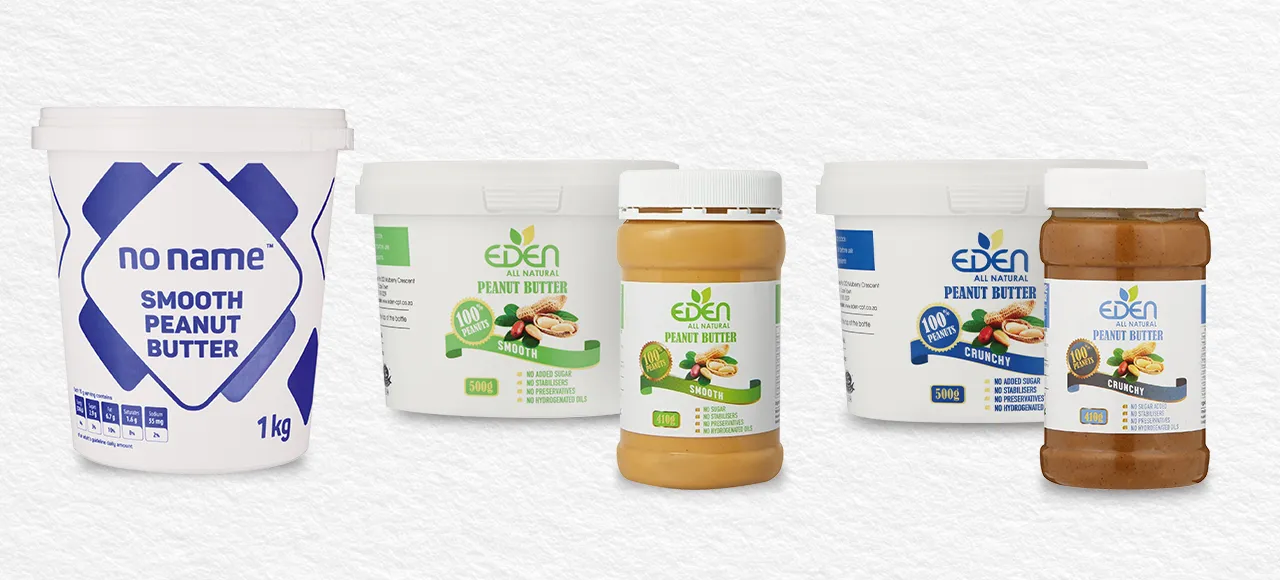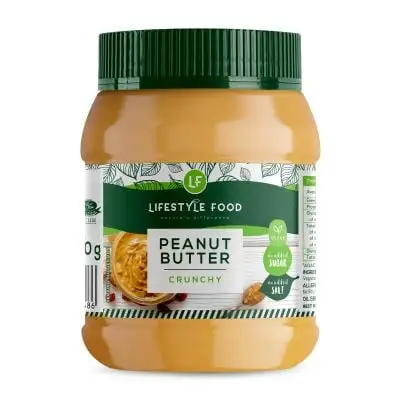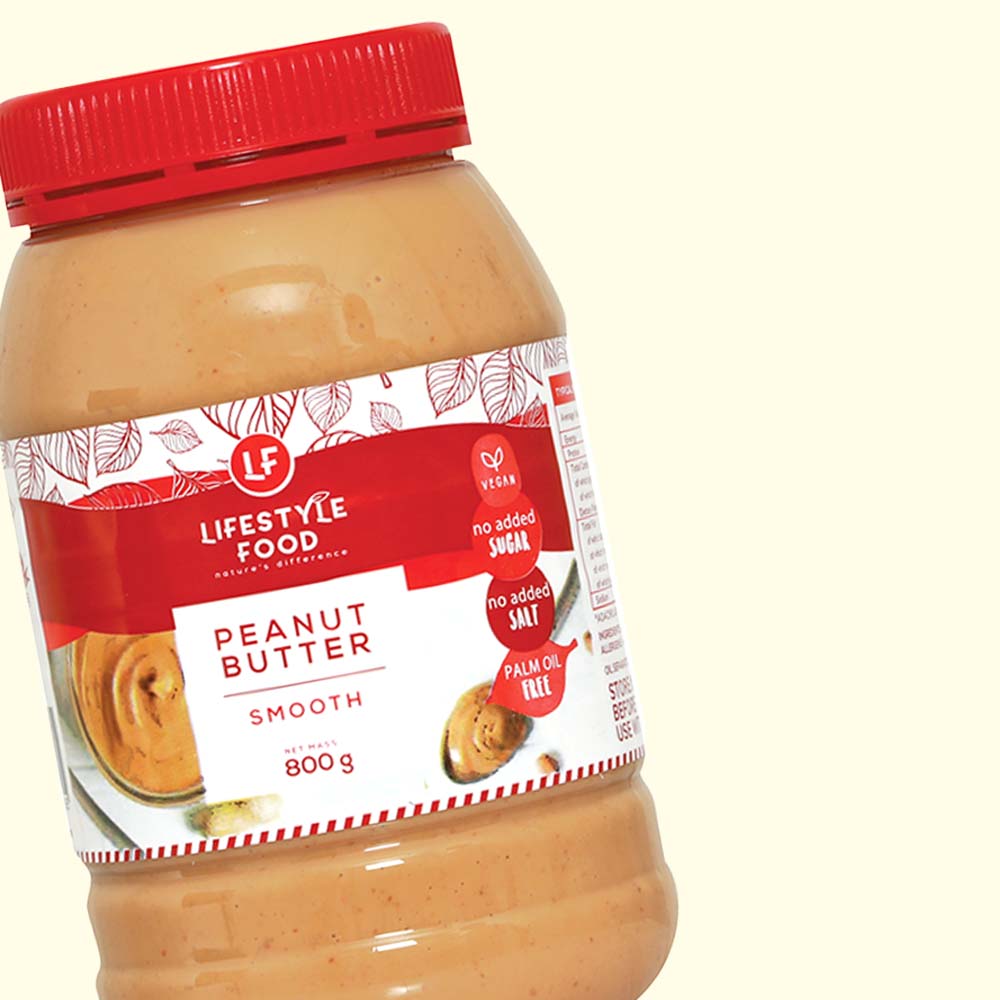CONSUMER ALERT
Product recall — more brands of peanut butter pulled off shelves over toxin fears

More peanut butter brands have been withdrawn from sale at Pick n Pay, alongside those sold at Dischem, Clicks, Faithful to Nature and other health shops.
The National Consumer Commission (NCC) has alerted the public that more peanut butter brands have been affected by the recall announced at the start of the month. These include Dischem’s Lifestyle 400g Smooth and Crunchy, Dischem’s Lifestyle 800g Smooth and Crunchy, Wazoogles Superfoods (all sizes), Pick n Pay’s No Name 1kg smooth and Eden All Natural. The commission has advised the public to immediately stop consuming these products and return them to the store they bought them from for a full refund, with or without proof of purchase. The Pick n Pay, Eden All Natural and Dischem Lifestyle brands are distributed at stores nationally, with Wazoogles Superfoods products mostly available in the Western Cape although they are sold widely online.

Pick n Pay has recalled No Name Smooth Peanut Butter, Eden Smooth Peanut Butter and Eden Crunch Peanut Butter. (Photo: Pick n Pay)
The NCC said the manufacturer of these peanut butters, House of Natural Butters, had found all the brands to have higher than legally acceptable levels of aflatoxin, which make them unsafe for human consumption.
-
- What: A group of toxins produced by fungi, primarily Aspergillus flavus and Aspergillus parasiticus.
-
- Where: Naturally found in the environment, commonly present on crops such as maize, rice, spices, cocoa beans, tree nuts, and peanuts.
-
- When: Produced by fungi in the field or during improper storage conditions, particularly in warm and humid environments.
-
- Harmful Effects: Potent liver carcinogens, capable of causing cancer in various animal species, including humans.
Acting National Consumer Commissioner Thezi Mabuza says the commission is investigating House of Natural Butters and will also conduct a nationwide assessment to establish whether other brands are affected. “The commission urges the manufacturers, distributors and suppliers of peanut butter to comply with regulations and conduct urgent tests to assess the safety of the products on their shelves and take immediate corrective steps if found to be unsafe. “The Consumer Protection Act requires that goods that pose any risk of harm to the consumer be recalled. It is the responsibility of the manufacturers, importers and retailers to ensure that goods comply with all applicable laws and standards of the republic. Aflatoxin may lead to health complications not limited to nausea, vomiting and abdominal pain.”
Stop consuming it immediately
Food safety expert Professor Lucia Anelich said it is vital that people stop consuming these products and return them as advised. Aflatoxins are a group of toxins produced by several fungi, especially Aspergillus flavus and Aspergillus parasiticus, she said. These are found naturally in the environment and can be present on different crops, including maize, rice, some spices, cocoa beans, tree nuts and peanuts. The aflatoxins are produced by the fungi while still in the field or when the commodities are stored incorrectly (in warm and humid conditions).

Dischem’s Lifestyle Crunchy. (Photo: Dischem)

Dischem’s Lifestyle Smooth. (Photo: Dischem)
Aflatoxins are potent liver carcinogens, which can cause cancer in all animal species, including humans. “It is estimated that around 4.5 billion of the world’s population (more than half of its current population), mainly in developing countries, is exposed to aflatoxins. Because aflatoxins are found so abundantly across many staple foods in developing countries, one could be exposed to low levels over a long time. In fact, this continuous exposure at low levels is known as chronic exposure and can be the cause of liver cancer many years later, estimated at around 20 years later.”
No safe level
There is no safe level for aflatoxin, but countries set their own regulatory limits for such commodities to limit exposure to these toxins through food and animal feed. Acute aflatoxicosis (poisoning through aflatoxins) cases are very rare but have resulted in liver failure and death. Anelich cites three notable incidents: In India in 1974, and two in Kenya — in 1981 and 2004 – all the result of consuming excessively contaminated maize. Read more in Daily Maverick: ‘Hair relaxers give us cancer’ – a legal campaign by US women sparks interest in SA “In such cases, death can occur within days of ingesting the product. What is evident from these poisonings and the research work done on these incidents, is that those people had very little else to consume and so they were consuming not only highly contaminated food, but large amounts of it as well i.e. their portion sizes and frequency of eating that contaminated food were very high.” She said it was important to note that, to date, there have not been any reported acute aflatoxicosis cases related to peanut or peanut-based product consumption.
Long-term exposure
Chronic exposure to aflatoxin, where one is exposed to lower levels over a longer time, is most linked with liver cancer, immune system suppression and growth stunting. Aflatoxin can cross the placental barrier, affecting the foetus, who will then be more likely to be stunted if exposed after birth to the toxin. Other factors also come into play when determining the possible outcomes of aflatoxin exposure, including age (children are more at risk), weight, health status (hepatitis B is the leading cause of liver cancer), nutritional status, variety (or lack thereof) in the person’s diet, frequency of consumption, portion size and period over which the contaminated food is ingested. DM





















 Become an Insider
Become an Insider
Dangerous
So if the Municipalities are not giving the consumers clean drinkable water can we have them withdrawn as well
Corporate consolidation and monopolies are a social danger.
These infected peanut butters likely came out of the same factory or supply chain, then purveyed as different brands.
It’s a system designed to funnel money into the hands of a few shareholders and food traffickers while deceiving consumers about choice and abundance.
Turns out a handful of companies control the majority market share of most grocery items we buy regularly. Consumer choice is largely an illusion – despite supermarket shelves and fridges brimming with different brands.
The danger is obvious. If one factory or assembly line is infected, then a host of other food is at risk. You could be sitting at a family dinner table with 5 different contaminated edibles. All branded differently but from the same source!!
A solution may be that we consumers start demanding the “localisation” of basics such as peanut butter, marmalade, dairy, poultry etc.
Why should someone in Hermanus consume yogurt processed in Pretoria? Production and delivery of peanut butter to a Woolies in Knysna can be contracted to a small enterprise in the area with related upside for area employment and empowerment.
For example, a resurgent hipster culture and old-school beer enthusiasts have contributed to a boom in local craft beers.
These are not capital or high skill products and can, infact, be made artisinally…….Our mothers used to make their own at home not so long ago!!
I entirely agree with these sentiments and principles, BUT I have grave reservations about their practicality. Local artisanal produce is almost always far more expensive than typical supermarket products. This is the inevitable result of production at small scale while still needing to make a reasonable profit. I see no easy way of getting around this dominant economic dynamic.
“Corporate consolidation and monopolies are a social danger.” A social danger is also expecting society to pay double for products because they are produced inefficiently. Greed is the problem here, and any producer, large or small, can act in greed to the detrement of society.
Oxybutynin (check spelling) can cause dementia. Prescribed in SA, yet not monitored. Points to 2 things, those who benefit from the sale, lack of interest from doctors to check their patients.
So not the main brands but Georgina seemingly doesn’t like peanut butter!
It would be good to verify if these are made with SA grown or imported peanuts.
I for one will never buy a peanut butter made with Indian peanuts (eg. Shoprite home brand) as they smell god awful.
Chinese peanuts likewise I wouldn’t trust, harder to detect where they are used. Like honey from China smells inedible. Sometime products just says from various sources, which is not very helpful.
Local peanuts are used in Thokoman, where the peanuts are grown in Bronkhorstspruit.
The mould could occur anywhere and at any time in the process, but on a ship in a container from India or China would be a likely place in the sweaty tropics.
So for me buy local is lekker and sensible.
Why don’t the other brand owners fess up as to the source of their peanuts? I just bought a jar of black cat, which I see isn’t on the list. Do I throw it out or wait for confirmation it is safe? Surely not every single peanut butter spread is contaminated. That is extremely unlikely. How many people eat peanut butter every day? And how many of those are poor and can’t afford more expensive protein? The faster the brand owners respond to the crisis the better. Ditching every single jar seems a bit extreme.
Black Cat uses locally grown peanuts and produces the finished product in SA. This according to their website anyway.
One of them has an ingredient.
“Highest quality roasted and cold pressed Argentinian peanut protein”.
Why would we import from Argentina?
I love peanuts, whole redskin roasted or spread. I buy them raw (avoiding the Chinese giant peanuts, don’t even want to know what they feed them!). Roast them myself in an air-fryer. From now on I’ll blend my own peanut butter as well.
Peanuts are such a healthy cheap protein in a hungry South Africa. We should grow more.
I am so happy that my brand is not named here as I eat it at least once a week and then I smear a thick layer of it on my sandwiches.
Hang on! Let’s be clear about this. It is being asserted that not only is there an inspectorate of foodstuffs, but that it has processes, the results are distributed, and companies actually pay attention?
I’m South Africa, if an institution is uncontroversial, generally flies under the radar, and no-one has figured out how to extract rent from it, it is generally left unmolested.
This is concerning , and the recall will ensure product is off the shelf and out of the home , however does anyone have an idea of the effect of foods where these nut products have been used . How safe is it to eat e.g. peanut butter cookies or daily smoothies made with these brands of peanut butters ?
From a bit of digging on the web:
“Several studies have indicated that aflatoxins in contaminated seed can be degraded by heat treatment. Lee et al. found that roasting of halves of peanut kernels for 30 min at 150°C can reduce AFB, by approximately 80%.”
“Aflatoxin in naturally contaminated ground peanuts was reduced by 50% when uncovered samples were treated by microwave for 5 minutes. The exposure time less than 5 minutes could reduce only 25% of aflatoxin, whereas longer time, 7 minutes, caused burning of ground peanut.”
Other treatments that cause a reduction in aflatoxins seem to include sunlight, ozone and ammonia, but none of those are likely included in most standard peanut butter cookie recipes. Overall, it seems tough to eradicate, but it could be reduced somewhat by further food processing?
Thank you for a detailed reply on how to almost eradicate this toxin.
Has any testing on other peanut products packaged from these delinquent stores been done, as they are likely from the same origins (and subject to the same non quality control)
Debbie Ncube Matake is the founder and Managing Director of a successful business called House of Natural Butters T/A Eden All Natural.
“I was in India in the past week.” as of 3 weeks ago comment.
Why were you buying peanuts?
Like I said in a previous post Indian peanuts are horrible.
Shame this small business is toast.
Someone should go after the supplier of the peanuts.
However anyone with a nose can smell a rotten peanut.
Cutting corners by manufacturers is at the center of this dud. And the fact that this failure has been detected at the store level is shocking.
I suspect adding salt acts as a preservative so I only buy Black Cat without additional salt and sugar.
As the article states, only one manufacturer, who supplies the mentioned brands, has been found to use contaminated peanuts: “The NCC said the manufacturer of these peanut butters, House of Natural Butters, had found all the brands to have higher than legally acceptable levels of aflatoxin, which make them unsafe for human consumption.